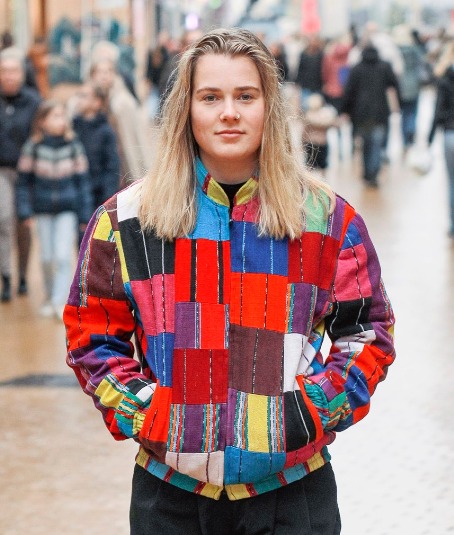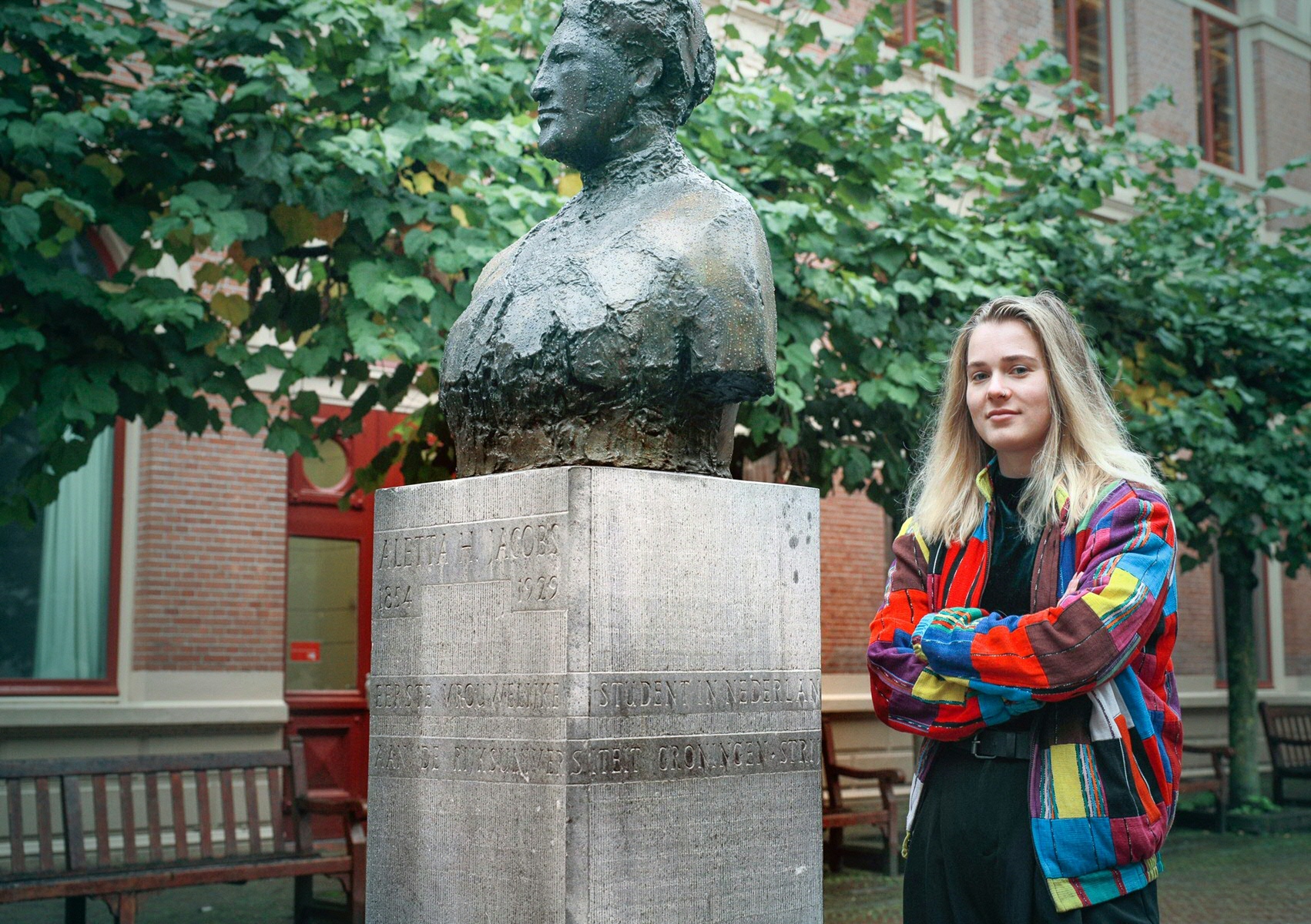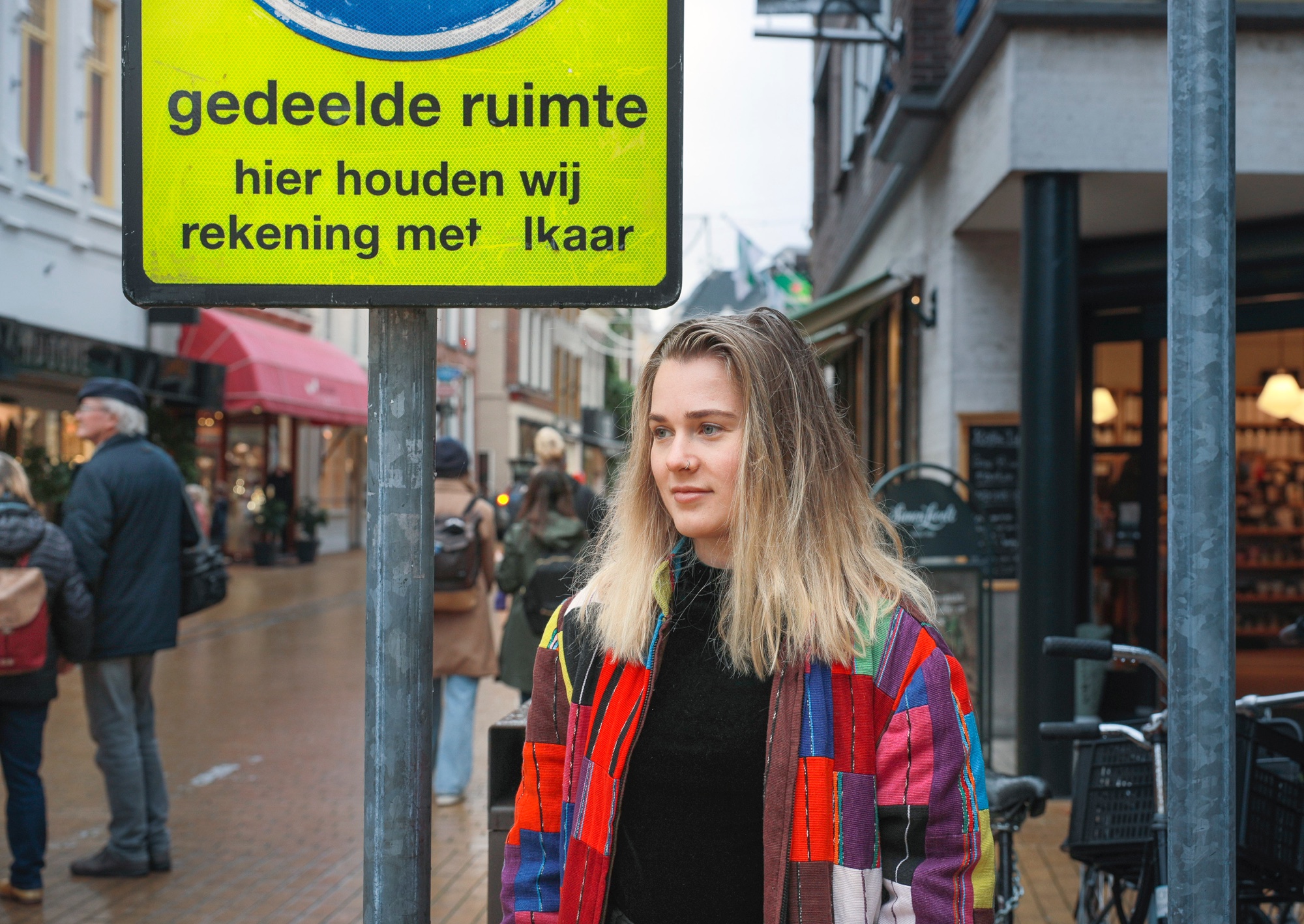Clashing human rights: how far can demonstrators go?

Blocking motorways, protesting against abortion, and waving torches outside a politician’s home. The right to demonstrate is of great importance, but sometimes causes friction with other human rights. For her PhD research, Noor Swart is looking into the Dutch right to demonstrate and comparing it to other European countries. ‘In the Netherlands there is little room to infringe on the right to demonstrate on the basis of other fundamental rights, such as the right to privacy.’
Text: Jelle Posthuma / Photos: Henk Veenstra
In her own words, Swart is looking at ‘difficult cases of demonstration’. That is to say, situations in which the right to demonstrate clashes with fundamental rights of third parties. ‘In these cases, a third party is involved, in addition to the demonstrator and the government,’ Swart explains. ‘Think of visitors of an abortion clinic, who are faced with demonstrators in front of the building. Or demonstrations at a politician’s private residence. In such situations there is friction between the right to demonstrate and the right to personal privacy, which is a very intense experience for those involved.’
Protesting at someone’s home
Swart is conducting her research using a number of different cases. Together with her supervisor, Dr Berend Roorda, she interviewed experts about unwanted and unannounced visits to politicians’ homes, for example. Swart also examined the restrictions mayors have imposed on demonstrators at abortion clinics. For her analysis, she looked at the letters that mayors have sent to the protesters. ‘At a lot of abortion clinics, protesters have to stand across the street. This falls under restriction of the freedom of movement. These restrictions usually depend a lot on the situation. For example, is the entrance to the abortion clinic near the busy entrance of a hospital? Mayors also consider whether the demonstrators have committed any punishable offences at previous demonstrations.’
Quran burnings
Over the next two years, Swart wants to research blockades of motorways, Quran burnings, and protests at mosques. ‘Through these case studies I hope to expand my research, as they concern the rights of groups of people rather than individuals. Additionally, these cases involve other rights than the right to privacy. When it comes to Quran burnings, these concern the right to freedom of religion and belief, as well as the prohibition of discrimination.’

Blockade actions
Several demonstrations are being closely scrutinized these days. The mayor of The Hague recently imposed restrictions on Extinction Rebellion’s blockade of the A-12 motorway, partly because it was creating dangerous traffic situations. The activists were allowed to protest, just not on the A-12, Swart states. ‘The demonstrators that did go to the A-12 were not complying with the mayor’s restriction, and were therefore committing a punishable offence. That’s why they were detained. A demonstration is not a license to break the law.’ Swart emphasises that a blockade action is in principle included in the right to protest. ‘At the same time, restrictions may be imposed if there are good reasons to do so.’
Constitutional right
In the Netherlands, the right to protest is embedded in Article 9 of the Constitution, with a further elaboration in the Wet openbare manifestaties (WOM, Law of public manifestations). Everyone in the Netherlands has the right to demonstrate, without needing a permit, Swart explains. Demonstrators have the freedom to choose where, how, and when they want to protest. However, they must announce the demonstration to the mayor. The mayor’s priority is to facilitate the demonstration to the extent possible, regardless of the content of the protest.
International comparison
In her PhD research, Swart compares Dutch law to the laws in other countries. She uses the European Convention on Human Rights (ECHR) as her framework. ‘It differs per case which countries are interesting to consider. For Quran burnings, Sweden and Denmark are relevant.’ By conducting comparative law research, Swart shows how other countries regulate demonstrations. ‘It can serve as inspiration for the Dutch model. With my research I hope to provide potential solutions, for example in cases where the right to demonstrate does not sufficiently protect the human rights of others.’
Strict interpretation
The ECHR allows for the right to demonstrate to be restricted in instances where it clashes with other human rights, affirms Swart. ‘But within Dutch law it’s not possible to explicitly take other people’s rights into account when it comes to demonstrations, as we did not include any grounds for restrictions.’ A mayor can restrict or even prohibit demonstrations on the basis of three grounds: in order to protect people’s health, in the interest of traffic, or to combat or prevent serious disturbances. ‘But these grounds for restrictions are interpreted very strictly in the Netherlands, in contrast to some other European countries. When the public order is disturbed in Germany, they also consider individual rights, for example, such as the right to privacy.
Fundamental right
Swart first encountered the right to demonstrate during her Master’s in International Human Rights Law, when she was helping out with research into demonstrations at abortion clinics. ‘I’ve always been focused on human rights. It is a fundamental part of law, which appeals to me. Demonstrating, too, is a human right. It has brought about big societal changes and is vital for the functioning of our democratic rule of law.’

Sandwich PhD
Swart herself has never demonstrated, but she is involved with the practical side of demonstrations in another way. The PhD student is doing a so-called ‘sandwich PhD’. While she is doing her PhD, she is working at the municipality of Amsterdam twice for six months, at the department for Public Order and Safety. Her first six months are now behind her. ‘In Amsterdam I could see what is happening in practice, what dilemmas there are. There is a lot to keep in mind when facilitating demonstrations. I hadn’t often considered this myself on such a practical level.’
Building bridges
The right to demonstrate certainly has its nuances. ‘I aspire to communicate these nuances in my work. I think it’s valuable that my research dovetails with current events. Demonstrators, but mayors and police too, often lack knowledge about the right to demonstrate. That is why I’m working with my supervisor on a website called demonstratierecht.nl. This website will have a FAQ (frequently asked questions) and an online advice tool that anyone involved in demonstrations can use. If anyone has any good ideas about further uses for this website, I would love to be in touch. I greatly value these forms of outreach. As an academic I believe it is one of my duties to build a bridge between science and society.’
For more information
| Last modified: | 30 November 2023 2.14 p.m. |
More news
-
12 January 2024
Leon Verstappen awarded a royal decoration during anniversary conference
Leon Verstappen (Meijel, 1965), Professor of Notary Law at the Faculty of Law of the University of Groningen, was surprised with a royal decoration in the category Officer of the Order of Orange-Nassau on Friday 12 January. During the anniversary...
-
11 December 2023
Join the 'Language and AI' community
As a part of the Jantina Tammes School, the 'Language and AI' theme is an interdisciplinary initiative that aims to encourage collaboration among academics, PhD candidates, students, and industry representatives who share a keen interest in the...
-
23 November 2023
Invitation to join the 'Applied AI' community
The remarkable progress in artificial intelligence (AI) is transcending boundaries and finding invaluable applications across diverse academic disciplines. Recognizing the transformative potential of AI, we are proud to introduce the new theme,...
